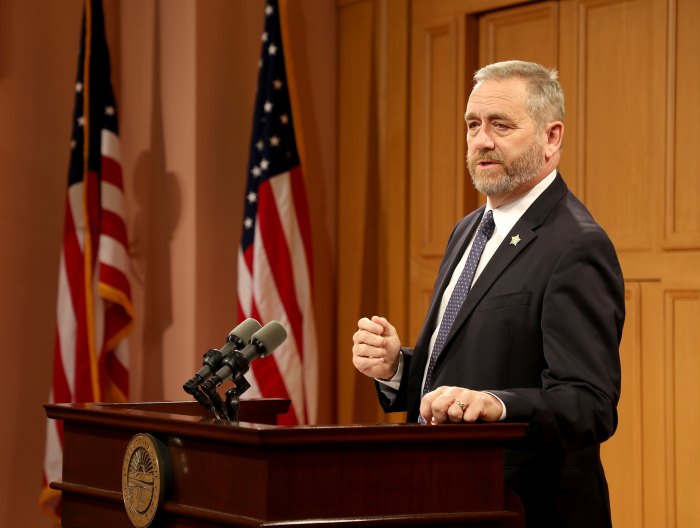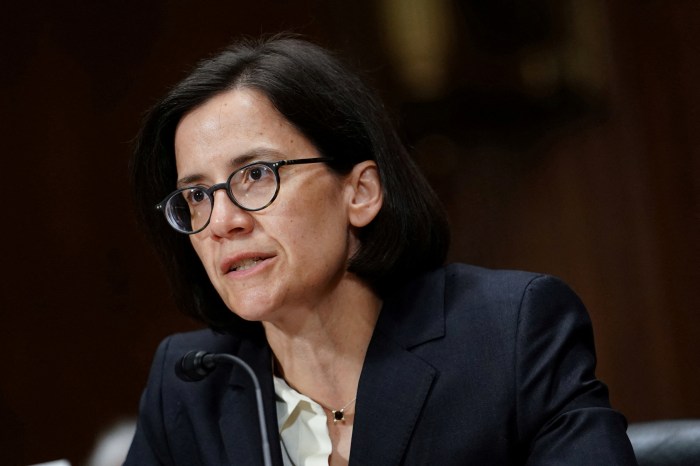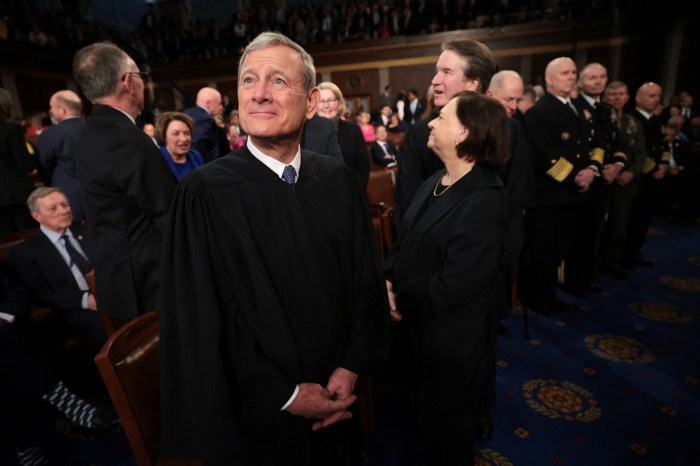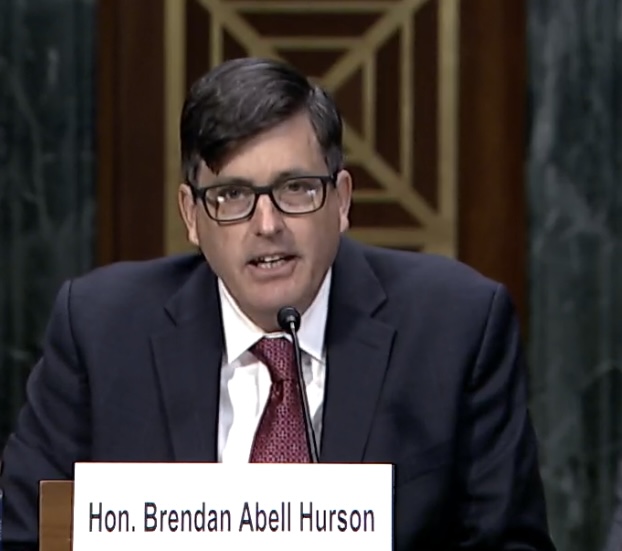This year's legislative session adjourns on June 19. | MICHAEL SHIREY
With less than four weeks to go until the State Legislature winds up its regular 2014 session, prospects for action on a long-stalled transgender civil rights measure appear dim even as another key LGBT objective in Albany, first introduced last year — a proposal to bar licensed mental health professionals from practicing “sexual orientation change efforts” (SOCE) with patients who are minors — is well positioned for approval.
For transgender rights advocates, lack of action by the State Senate on the Gender Expression Non-Discrimination Act, nearly a dozen years after the state adopted a gay rights law that lacked protections based on gender identity and expression, is a bitter pill to swallow.
“Trans New Yorkers want a vote in the Senate,” said Melissa Sklarz, a longtime transgender activist and a recent past president of the Stonewall Democrats of New York City. “We want it on the floor, we want to hear a debate, and we want to see a real vote.”
But Senator Daniel Squadron, a Lower Manhattan-Downtown Brooklyn Democrat who is GENDA’s lead sponsor, acknowledging he has received “no clear encouragement” from leadership that a floor vote would be allowed, said, “I wish I could be optimistic.”
In contrast, Squadron’s Manhattan colleague Brad Hoylman, an out gay Democrat, is getting encouragement that a measure banning SOCE — also dubbed conversion therapy, even a “cure” for homosexuality — will be voted on before the June 19 Senate adjournment and can prevail. He cited not only “personal conversations” with senators on both sides of the aisle, but also published reports indicating that both Governor Andrew Cuomo and Bronx-Westchester Senator Jeff Klein — who as head of the five-member Independent Democratic Conference, which broke away from the rest of the Democrats, shares control of the Senate with Long Island Republican Dean Skelos — support action on the bill.
Advocacy on behalf of the measure by Klein is critical. It is an irony of New York State politics that although LGBT rights have enjoyed their greatest and earliest support in the Democratic-dominated Assembly, key initiatives — including the 2002 gay rights law and the 2011 marriage equality law — became law under Republican-run Senates.
But that success has only come after determined efforts to win agreement for a floor vote — and at times with only a handful of GOP votes. As one of the two senators with ultimate say as to what gets to the floor, Klein, should he follow through on his support for the measure, could lower what is often a formidable hurdle to Republicans agreeing to take up an LGBT measure.
Hoylman emphasized that the context for the measure’s rapid advance is its nonpartisan appeal.
“It is fundamentally about protecting kids,” he explained. “And it doesn’t impinge on religious freedom.”
The bill places no restrictions on any counseling or spiritual guidance offered by faith groups or others who are not licensed by the state to practice mental health treatment and therapy. Hoylman also noted that the idea has won bipartisan support elsewhere in the country, with New Jersey’s Republican governor, Chris Christie, a likely 2016 presidential aspirant, signing the nation’s second such law last year.
The bill Hoylman and his out lesbian Assembly colleague Deborah Glick, also a Manhattan Democrat, are advancing follows on legislation first adopted in the US by California in 2012. The California law faced two court challenges from SOCE practitioners on the grounds that it violated their free speech rights, but last August a federal appeals court upheld the statute, distinguishing between the rights practitioners enjoy to advocate for the practice in public debate and the limitations on the therapeutic practices they can employ in their professional conduct governed by state licensing.
The Hoylman-Glick legislation and the memo accompanying it emphasize the position taken by leading professional groups — including the American Psychological Association, the American School Counselor Associations, the American Academy of Pediatrics, the National Association of Social Workers, and the American Academy of Child and Adolescent Psychiatry — that SOCE, in treating homosexuality and gender nonconformity as mental illnesses in need of cure, actually increases mental health risks for young people in terms of depression, substance abuse, and suicide.
At a recent Manhattan hearing on their bill, which would ban treatment to change not only sexual orientation but also gender identity and expression, Hoylman and Glick heard from a variety of such professionals, LGBT advocates, and SOCE survivors, including Mathew Shurka. Shurka spoke about a variety of disabling effects — including anxiety, depression, and weight gain — that he suffered as a result of five years of SOCE treatment he underwent from a licensed professional practicing in Manhattan’s Union Square.
According to Nathan Schaefer, the executive director of the Empire State Pride Agenda (ESPA), which has made the bill one of its top priorities this year, though the number of SOCE practitioners his group has identified in New York State is small, the problem of parents turning to it as an option when they learn their child is LGBT “is huge.” He cited a study out of the University of California at San Francisco finding that up to one-third of LGBT youth are encouraged or required to undergo SOCE.
Most SOCE therapy, Schaefer said, is undertaken in religious or other non-professional settings, though he also said there are likely a number of mental health professionals who carry out such treatment without advertising it broadly, so their activity has not been identified by advocates fighting the practice.
One of the key benefits of legislation like the Hoylman-Glick bill, he said, is its “symbolism” — a statement by the State of New York that it does not license or condone what Hoylman referred to as “quackery.”
On the Assembly side, Glick is confident of passage. The 26-member Higher Education Committee that oversees professional licensing, which she chairs, approved the measure with the support of three Republicans. Consideration by the Codes Committee, where she anticipates “no problem,” will likely take place either this week or next, clearing the way for a floor vote.
Both Hoylman and Schaefer are upbeat about the prospects in the Senate, though both caution more work needs to be done. Hoylman has discussed the measure with Higher Education Committee chair Kenneth LaValle, a Long Island Republican, though he said more conversations are needed. Schaefer urged the LGBT community to focus particular effort on reaching out to LaValle, who, he said, “needs to hear this is an important mental health need for the community.”
ESPA and other advocates, however, are warning that a more likely impediment is opposition from upstate Republican Michael Nozzolio, who chairs the Codes Committee and has long been hostile to LGBT interests. Hoylman and others have noted that Senate procedures allow bills an alternative route to the floor other than through the customary committee approvals — by a favorable vote in the Rules Committee, which is run by leadership. Which brings the discussion back to Klein’s willingness to go to bat on the issue.
In recognition of the fact that nothing is done until it’s done in Albany, Hoylman also identified a silver lining should anything cloud his bill’s advance in the Senate, saying, “If the bill only passes the Assembly this year, that’s still progress.”
That sort of interim advance is no longer sufficient for the advocates who have pressed GENDA’s case since 2003. Though this year will mark the seventh time the Assembly approves the measure, the only action ever taken by the Senate was a failed vote in the Judiciary Committee, largely along partisan lines, in 2010. ESPA’s Schaefer echoed Squadron in saying he’s received no assurance from leadership that the measure will get floor consideration in June.
And both Squadron and ESPA agree that with one Senate Democratic vacancy (the seat formerly held by Brooklyn Borough President Eric Adams) and two other Democrats (Brooklyn’s John Sampson and Queens’ Malcolm Smith) under criminal indictment and, as a result, politically unreliable, their confidence that the measure has the 32 votes needed for passage is less than it previously was.
Still, GENDA’s supporters want an up or down floor vote.
“The transgender community has been working on this for more than a decade,” Schaefer said. “They deserve a vote.”
“We are again urging a vote as we have in recent years,” said Squadron, who, noting a 2013 media campaign by ESPA that cost more than $300,000, added, “Last year there was a particularly strong push and we still didn’t get a vote. Forcing people to take a stand is an important part of its passage.”
Senate Democrats clearly see the Independent Democratic Conference’s inability to get action on GENDA as emblematic of the hollowness of its conceit that it brings a progressive voice to the running of the Senate. And, last year, after GENDA failed to get a vote, Schaefer agreed that the problem was with the Senate leadership.
Now, however, ESPA is also raising complaints about Cuomo’s silence on the issue, a critique echoed in a May 27 editorial in the New York Times.
“We would like to see more from the governor on GENDA,” Schaefer told Gay City News. “He said it was a priority in 2011, but we haven’t heard from him since. And the Senate leadership will need to hear from the governor on this if it is to move.”
Squadron disagreed with that assessment, saying, “The governor is supportive of this and has been for some time. The governor’s office is engaged on this issue and that is meaningful.”
Asked about the governor’s posture on GENDA, his press secretary Matt Wing reiterated Cuomo’s longstanding support for its passage.
Klein’s office did not provide a promised reply as of press time.



































